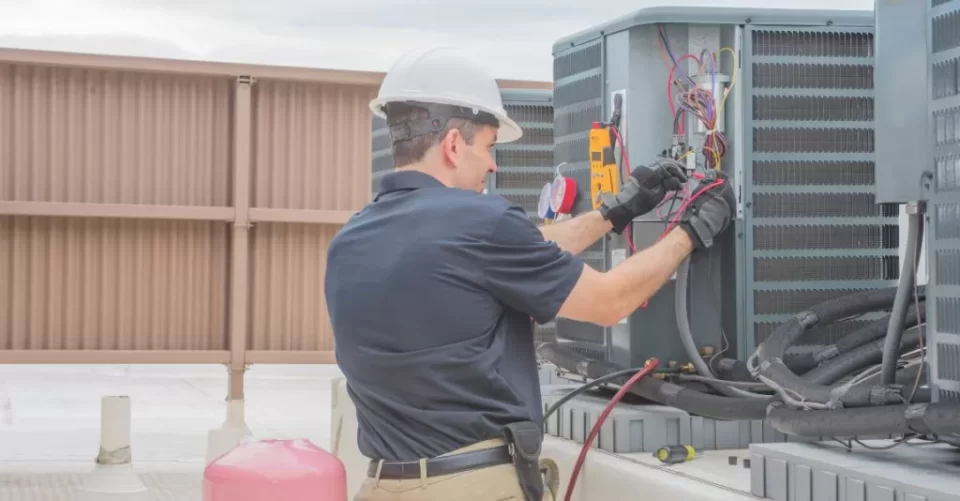Denver’s climate is known for its extreme variations, with hot summers and cold winters. As a result, HVAC setups in Denver face unique challenges. To ensure your HVAC system runs smoothly year-round and avoid costly repairs, it’s crucial to be aware of common HVAC problems in Denver and how to prevent them. In this article, we’ll discuss some common issues and provide practical tips on how to keep your HVAC system in top condition.
Frozen Air Conditioner Coils
During Denver’s scorching summer months, air conditioning units work overtime to keep homes cool. One common problem is frozen evaporator coils. This occurs when the refrigerant levels are imbalanced, airflow is restricted, or the unit is overused. To prevent this issue, schedule regular maintenance with a professional HVAC technician. They can check refrigerant levels, clean coils, and ensure proper airflow, preventing freezing and preserving your system’s efficiency.
Clogged Air Filters
Because of the dry air in Denver, dust and other particles can settle within the air filters of your HVAC Denver system. Reduced efficiency and increased system workload are results of clogged filters that limit airflow. Depending on your system and usage, changing the air filters regularly—ideally every one to three months—will prevent this problem. Keeping the filters in your HVAC system clean is an easy way to keep the air inside better and longer.
Inadequate Insulation
Enough heating systems are required for Denver’s frigid winters. A prevalent problem that results in heat loss and increased energy costs is insufficient insulation. Check for gaps and fractures in the insulation in your home to avoid this issue. To further reduce heat, transfer and keep a comfortable inside temperature, think about replacing your windows and doors with energy-efficient models.
Thermostat Issues
A malfunctioning thermostat can cause temperature inconsistencies in your Denver home. Outdated or inaccurate thermostats may not properly regulate the HVAC system, leading to discomfort and inefficiency. Prevent this problem by upgrading to a programmable or smart thermostat. These devices offer precise temperature control and scheduling, allowing you to optimize heating and cooling while reducing energy consumption.
Ignition Or Pilot Problems
In the frigid Denver winters, heating systems are put to the test. One common issue is ignition or pilot problems in gas furnaces. These problems can result from dirt buildup, faulty components, or wear and tear. To prevent heating breakdowns, schedule an annual furnace inspection and maintenance service. Technicians can clean and inspect critical components, ensuring your furnace operates safely and efficiently.
Refrigerant Leaks
Your cooling performance and energy costs can take a nosedive if refrigerant escapes from your AC system. In Denver’s climate, where AC units are essential during the summer, refrigerant issues can be particularly troublesome. To prevent leaks, have your HVAC system regularly serviced by a professional technician. They can detect and repair leaks early, preventing further damage to your system and helping it run efficiently.
Poor Air Quality
Denver’s elevation and outdoor air quality can impact your indoor environment. Poor air quality can exacerbate respiratory issues and affect your overall well-being. To prevent this problem, consider installing air purifiers or air filtration systems within your HVAC system. These devices can remove allergens, pollutants, and contaminants from the air, ensuring that your home’s indoor air quality remains high.
Conclusion
A proactive maintenance approach and an awareness of the specific challenges given by the climate of the region are required to prevent the usual HVAC problems that occur in Denver. Your heating, ventilation, and air conditioning system may be kept in good working condition by performing routine maintenance, insulating it effectively, using the thermostat correctly, and addressing particular issues such as refrigerant leaks and air quality. This will facilitate year-round comfort and energy savings.


